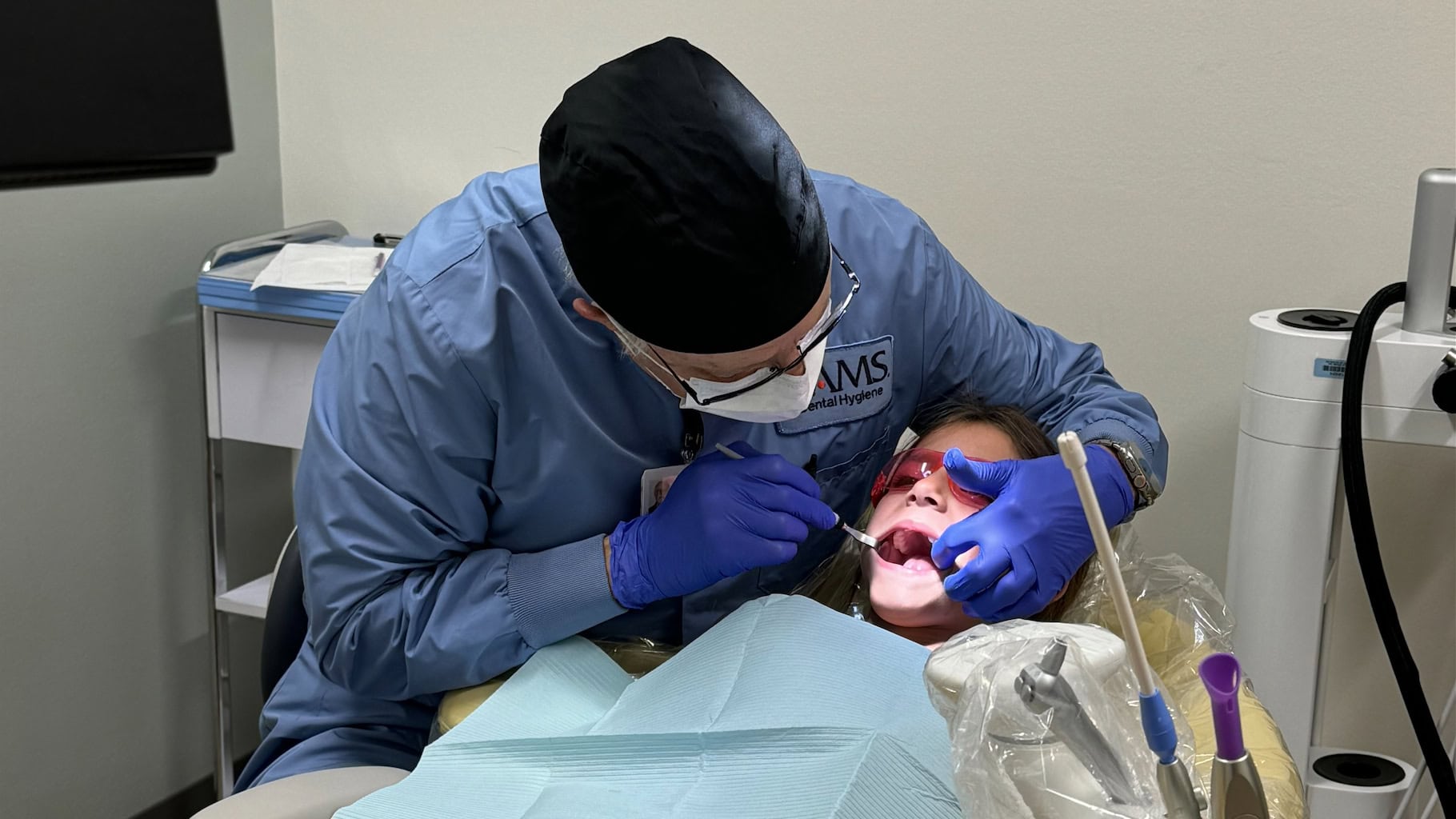Dental Hygiene Program Delivers Thousands of Hours of Community Service
| Community service is an important part of the education provided to students in the UAMS dental hygiene program. While helping students learn and gain experience, it increases access to preventive dental care and helps to address oral health care issues in society.
Since moving into its Freeway Medical Tower clinic in early 2021, the College of Health Professions’ Dental Hygiene program has utilized the new, expansive clinic to also support service projects that have provided dental care to more than 500 patients for free, most of them children.
That number doesn’t include the over 2,200 patients each year who receive dental hygiene care by students under the direct supervision of faculty for a nominal fee during the clinic’s regular office hours Along with Sealant Clinics in the spring, the program’s free Fall for Smiles and Summer for Smiles clinics offer preventive services such as dental cleanings, examinations, X-ray imaging, pit and fissure sealants, and fluoride treatments to pediatric and adolescent patients.
Word has gotten around about the free Saturday clinics.
“What I have noticed over time is we don’t have to advertise that much,” said Bridget Fitzhugh, RDH, MSDH, assistant professor in the Department of Dental Hygiene. “Now, they’ll call the clinic and ask, ‘When’s the next time for a community day for the children and adolescent patients?’ We can book these clinics well in advance.”
Fitzhugh said many of the children have never been taught how to take care of their teeth and gums, and their families aren’t regularly seen by a hygienist or dentist.
“The majority of patients treated in our clinic do not have access to state funding to have dental insurance. We are not only educating the children, but also the parents, so it can have an impact beyond that child including, other children in the family as well as the adults,” said Claire Tucker, Ed.D., RDH. Tucker is the director of the program and an associate professor.
The dental hygiene students also get exposure to a patient population that may be different from those they see through the clinic’s regular schedule.
“I think it’s eye opening for the students just to see the amount of decay and what a lack of education and/or access translates into regarding the amount of dental disease at an early age,” Tucker said. “They get a lot of exposure to learning how to communicate with parents and engaging with them in difficult conversations.”
Fitzhugh said the students talk to both parents and children about the importance of good nutrition to oral health, especially avoiding sugary drinks.
Before 2021, the clinic was located in a smaller space on the main campus. Tucker said the program could never have done as much there as it has at Freeway. Patients find the new clinic easier to get to and to navigate once they are there.
To get the word out about good oral health practices and dental health, the program’s students don’t confine their efforts to the Freeway Clinic. Senior students in the program are required to offer oral hygiene education at different places in Arkansas. Tucker said they go elementary schools and public events like the Special Olympics to teach others about good dental health practices.
“Those efforts reach an additional hundreds, if not thousands, of children and adults,” Tucker said. “It’s not an exaggeration to say that our program performs thousands of hours of community service for Arkansans.”
